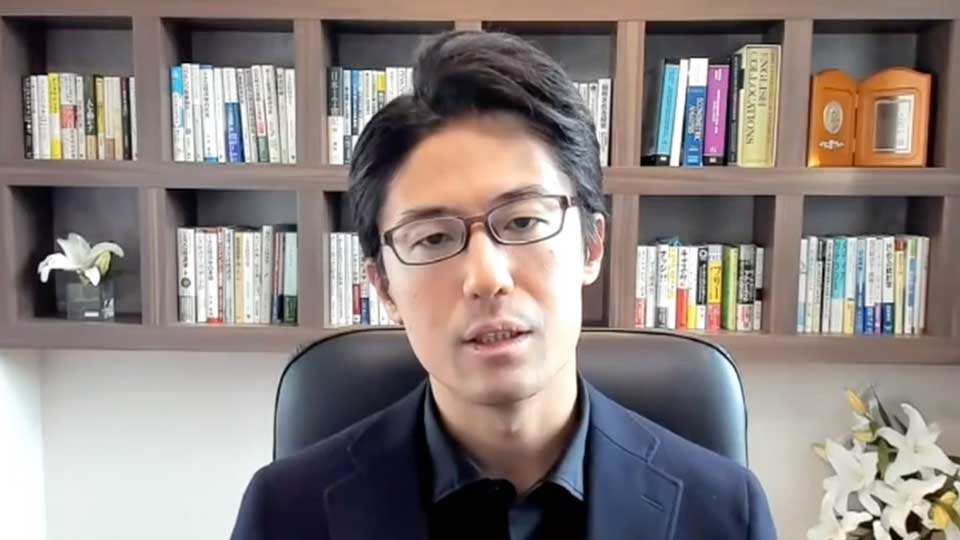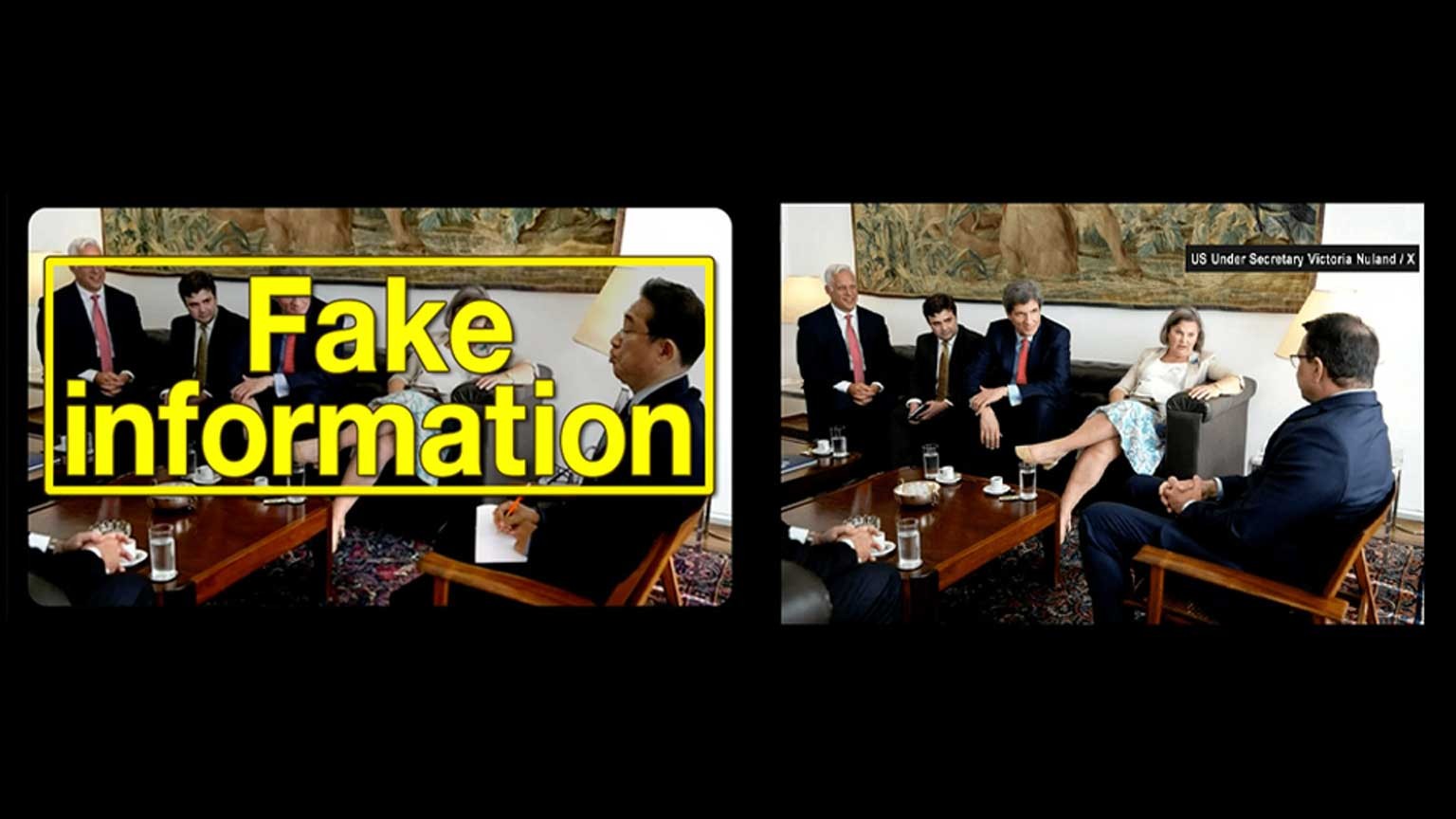Since early this month, an image has been circulating on X, formerly known as Twitter, that appears to show a seated Kishida being stared down by senior US officials.
It's based on a photo taken in 2022 at a meeting between government officials from the US and Brazil. Closer inspection makes it clear that Kishida has been inserted over the Brazilian foreign minister, as the fingers seem unnatural and parts of the background are distorted. The pattern of the carpet and parts of the chair's armrests were added after.
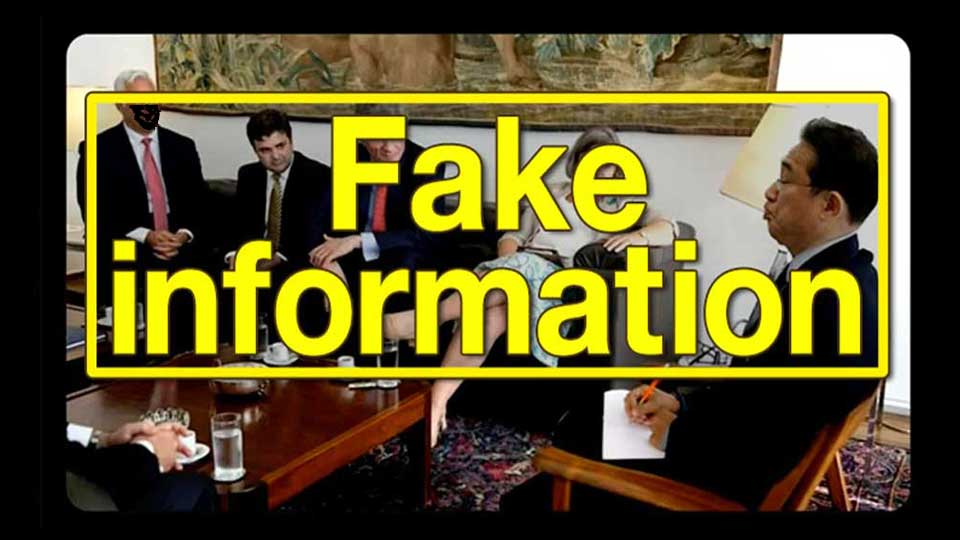
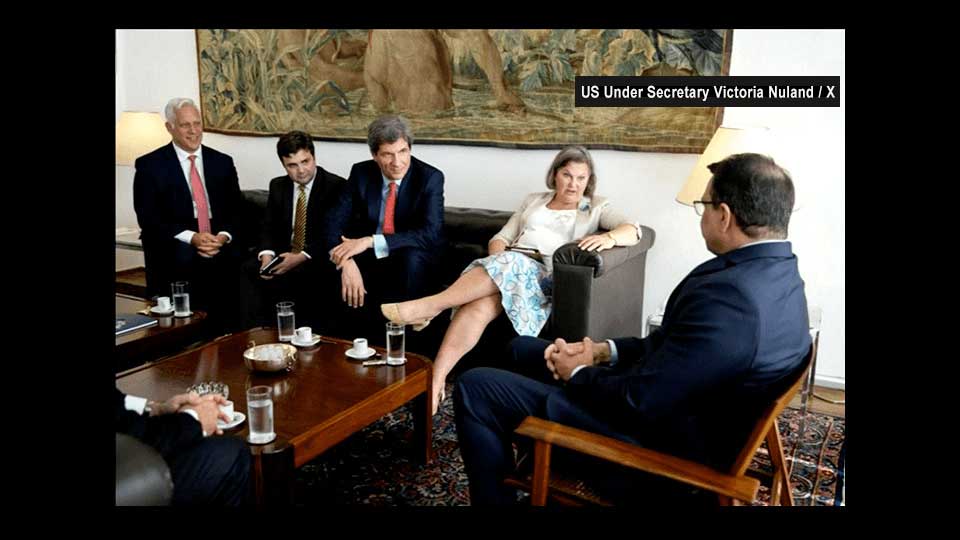
The fake image was posted by an account that has repeatedly expressed support for Russia. So far, it has had more than 700,000 views and reposts.
Fake video produced by cutting and pasting
Another post spreading on X shows a video of a fake statement by Kishida. He appears to endorse a policy of "having immigrants account for 90 percent of the population."
But the video was made by cutting and pasting remarks from July 2023 in which Kishida referred to countries, such as the UAE and Qatar, that have a large foreign population and said that we should consider a cohesive society that fits Japan.
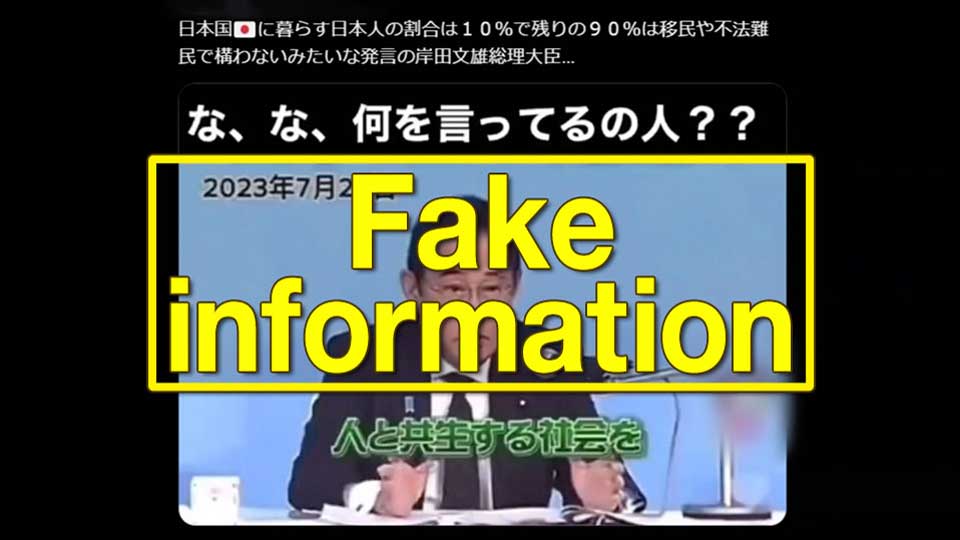
The video has been viewed more than 2.5 million times.
Last year, a fake video using generative AI to show Kishida saying something he didn't actually say underlined the need to verify the sources of information on social media.
Expert: "Political fakes pose great danger"
Yamaguchi Shinichi, an associate professor at the International University of Japan, points out that the risks begin with ease of access. "Advances in technology such as generative AI have made it easier for anyone to manipulate images and videos, and political fakes are on the rise," he says.
"This poses a great danger to the very foundations of democracy, as it could cause divisions in society," says Yamaguchi. "It's important not to think that you can't be deceived, but to understand that you can be deceived and then to take appropriate action."
